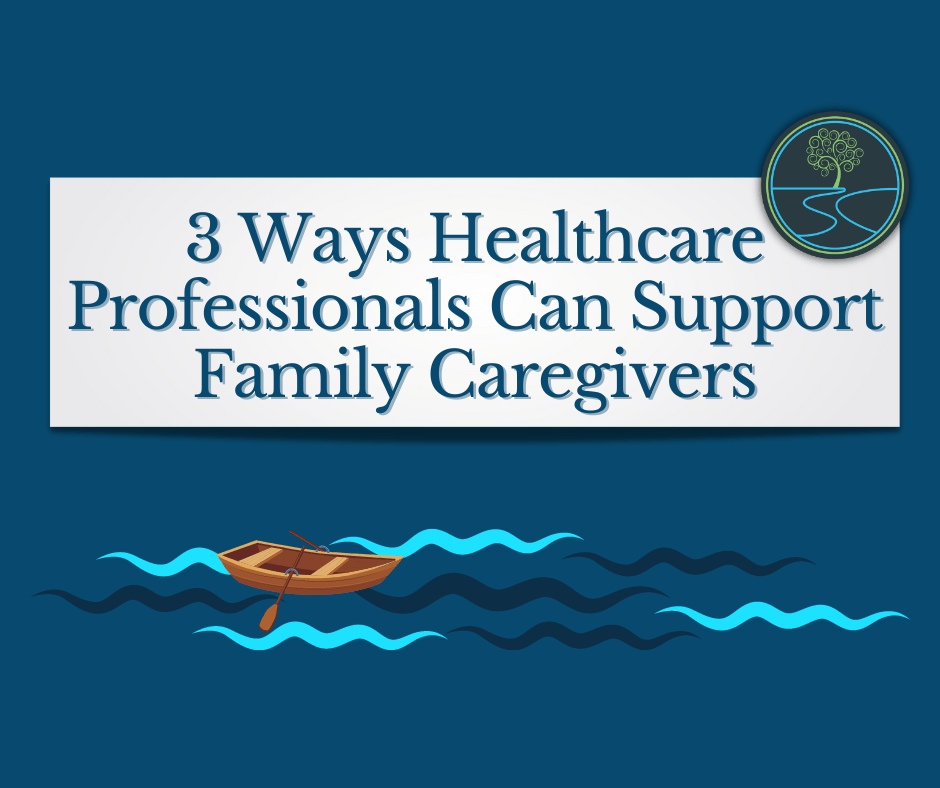As the founder of Sustainable Caregiving, I care for family caregivers. My path to this role was rocky. I cared for my father for seven years. He passed at 99 in December 2020. I spent the first few years struggling with the emotional challenges, which also impacted my physical health. I became a shell of my prior self and felt broken, lonely, and consumed with guilt, anger, resentment, and uncomfortable thoughts that swirled. The doctor’s office teams and hospital staff met this fragile version of me. A capable person, depleted due to years of stress, worry, and overwhelm. I was at the lowest point of my life. I put up a good front. I didn’t want anyone to know how much I struggled, but my path was unsustainable.
When I tried to put the challenges into words, they sounded minimal and manageable. When I opened up and shared how I felt, the reactions I received reinforced my insecurities. I felt judged and viewed as complaining about minor incidents. I judged myself and felt shame for my inability to cope with the stress. My story is repeated 53 million times across the US. Family caregivers are the healthcare system’s untrained, unpaid, and underserved component. At home, they are CNAs without the certification, training, or pay, and there is no respite from the deeply felt worries and conflict fueled by fear.
Healthcare professionals are the constant in a caregiver’s journey. We see them regularly, and they are our heroes during each medical crisis. Early in the experience, interactions can feel awkward and intimidating. We haven’t found our voice yet as our care recipient’s advocate. We don’t fully understand our role and evolving responsibilities. Uncertainty permeates the experience, and when we engage with medical professionals, we can be eager for both guidance and to be seen as an essential and valued member of our care team. We are an expert in our family member and have valuable information to share, but we may not yet realize our place in the partnership. Eventually, we embrace our position as the leader of our family member’s care team.
There are three ways healthcare professionals can support family caregivers on their journey when paths intersect.
1. Validate the family caregiver and their emotions
The validation void we experience as family caregivers is vast. Healthcare professionals have a unique opportunity to provide elusive validation to the family member accompanying the patient to the hospital or doctor’s office. Making eye contact with the caregiver and inquiring how they are doing will help them feel seen in a way they do not experience in most interactions. Validating their response is as simple as acknowledging that what they do as a caregiver isn’t easy and that how they feel is normal. Tears may appear because being seen evokes powerful emotions.
2. Recommend resources for the care receiver and caregiver
Connecting a family caregiver with resources is another way to support and show concern for the caregiver’s well-being. When a family member begins helping their older adult, they may not yet identify as a caregiver. By the time they realize they are in a caregiver role, they are often burned out and too overwhelmed to locate resources. Two types of resources are critical early in the experience to prevent the caregiver from sliding down the slippery slope into the flames of burnout. Caregivers can be unaware of resources available to help their care recipient, such as the local area agency on aging, AAA, or patient advocacy organizations, PAOs.
Equally important are the resources that can help the caregiver cope with the emotional challenges. These resources include support groups, adult day centers, caregiver support websites such as Caregiving.com and AARP, Facebook groups, caregiver coach contact information, PAOs, and more. Connecting caregivers with these support resources also helps them know they are not alone, giving them hope and confidence to continue caring and advocating for their family member.
3. Provide permission to prioritize well-being
Caregiver self-care requires creativity. Self-care can come in 5- or 10-minute blocks and be micro-dosed throughout the day. Telling a caregiver that they should be taking care of themselves is triggering. The word “should” is triggering because they know that their well-being is suffering but are so consumed with managing the many needs of their family member that the idea of prioritizing their well-being seems absurd. Encouraging the caregiver to stay connected to what helps them feel whole can start the conversation. Self-care feels selfish. Hearing that it is not only acceptable but essential to prioritize caregiver well-being can be the message that makes the difference.
The caregiver likely needs help, but accepting and receiving help can also be a sensitive subject. Friends and family distance themselves as care needs intensify, and options can appear limited. The caregiving journey gives us an opportunity to locate new travel companions, guides, and services. In addition, essential components of our self-care support system do not include people. We can cultivate resilience and strength from within when we spend time in stillness, journaling, outdoors, reflecting, researching, and planning. Each of these activities is self-care. Time alone can feel unproductive, but it is how we renew our energy and stay connected to our strength.
Thank you to all the healthcare professionals who make a significant difference for family caregivers as they navigate their journey. Guiding a family caregiver to discover a more sustainable path helps the caregiver, care recipient, and the entire care team. For more information on the 12 Sustainable Caregiving Strategies, go to SustainableCaregiving.com. Navigating the Caregiver River: A Journey to Sustainable Caregiving is available on Amazon. The Self-Caregiving Strategies Podcast explores the 12 Sustainable Caregiving Strategies and can be found on popular podcast channels.
Schedule Theresa Wilbanks to speak on caregiving and empower the caregivers in your workplace or community with the 12 Sustainable Caregiving Strategies.
Advice offered is for general information only; please contact your healthcare team, legal or financial advisors to guide your particular situation.

